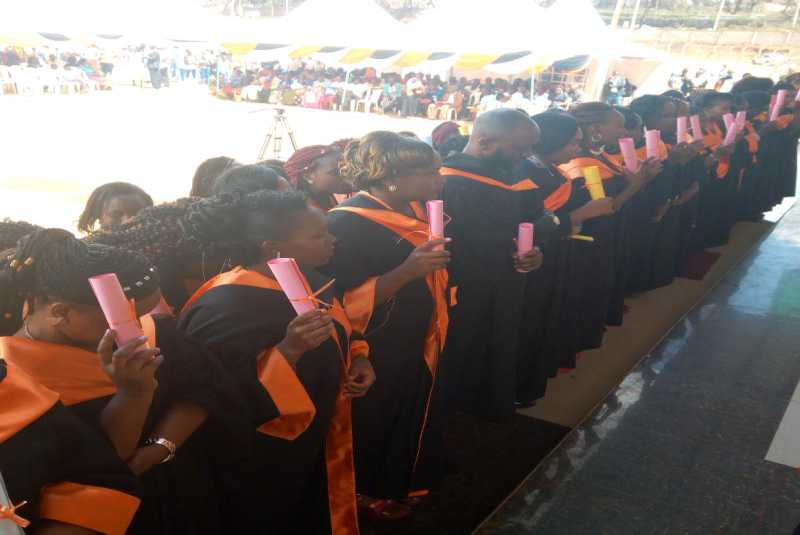×
The Standard e-Paper
Stay Informed, Even Offline

Embu Glamourland Technical and Vocational Training Institute students graduate with certificates and diplomas in full cosmetology, hair dressing, life skills and counselling psychology on Friday. Ministry of Education is working on a program of making graduates better equiped. [Photo: Joseph Muchiri, Standard]
Students studying for diplomas and certificates will spend half of the course duration on attachment.